Clea Simon's Blog, page 20
June 23, 2020
#NoContact Book Tour with Eileen Watkins
Today I’m welcoming Eileen Watkins to the #NoContact Book Tour! I know Eileen through her cat mysteries, but now she’s back with a heartwarming rescue book that centers on a horse. Well, a horse and two women who rescue each other. The new novel is Reboot Ranch, and I’ll let Eileen take it from here.
Tell us about your book!
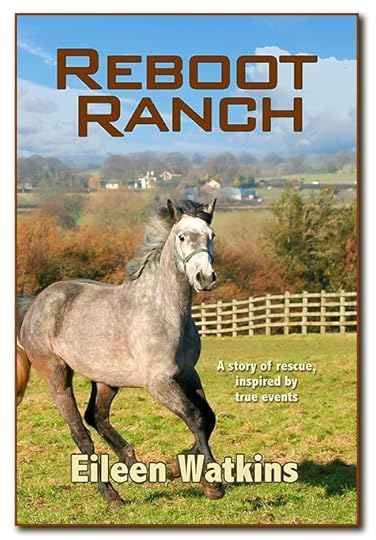
My latest is REBOOT RANCH, a novel about a woman and her teenaged niece working together to start a horse-rescue farm. Both recently have gone through traumatic personal events, but they share a love of animals and find new purpose in this goal. Disappointed and even betrayed in the past, they learn to trust each other and even to accept help from the new men in their lives. I was inspired by a friend who single-handedly founded a horse rescue in Pennsylvania, and shared with me some dramatic tales of her experiences. I’ve tried to make the book entertaining for both adult and YA readers, while still pointing out the conditions in modern society that produce so many “expendable” horses, and create an urgent need for these rescue farms.
Are you working on anything now? Is your process or routine different?
I also write the Cat Groomer Mystery series for Kensington Publishing, and since the outline for #6 in that series has just been accepted, I’m currently working on that. The title, unless it’s changed somewhere down the line, will be NIGHT OF THE WOLF-CAT. (My next book out, in February 2021, will be CLAW & DISORDER.) Since I’ve been working from home, anyway, my routine has changed very little, except that I have more time to devote to my writing and fewer distractions. The down side is that I had planned to take part in a lot of promotional events this year, from major conferences to local book fairs, and as you noted, all of them either have been or probably will be canceled.
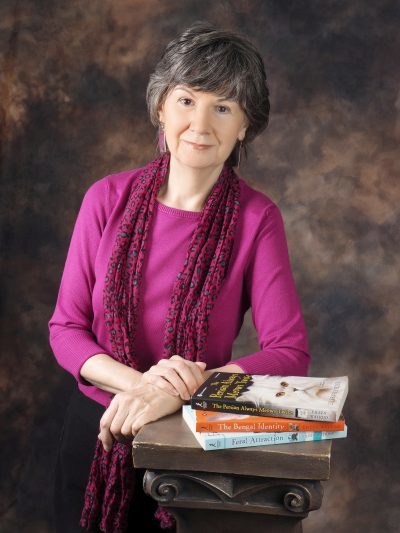 OLYMPUS DIGITAL CAMERA
OLYMPUS DIGITAL CAMERADo you think your writing will be changed by this crisis?
So far, I am not dealing with the pandemic in any of my plots. Being an optimist, I am hoping it will be fairly short-lived, and I would rather ignore it than write details that will later date my books as being set in “that period.” If I wrote science fiction or fantasy, it might be different, but cozy books are supposed to take place in a pretty conventional world. (Spoiler alert, WOLF-CAT is going to feature some people wearing masks, but not to keep anyone safe—just the opposite!)
What’s the first thing you’re going to do when we’re free to be social again?
Visit a good friend in the next county whom I haven’t seen since mid-March—luckily, she’s stayed healthy, too. I was taking part in a four-person critique group that meets at the local library, and although we’ve been exchanging material online we’re itching to meet in person again. I’m happy that at least my riding stable has re-opened for lessons, since I need my “horse fix” once a week. And they’re also the perfect size to enforce social distancing!
Thanks so much, Eileen! And just for you cat people out there: Gone, Kitty, Gone is Eileen’s most recent kitty mystery.
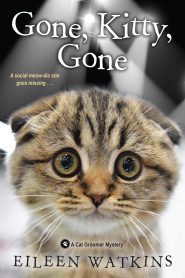
June 17, 2020
#NoContact Book Tour with Toni L.P. Kelner
I am so proud to have Toni Kelner here today celebrating her contribution to the incredible Shattering Glass anthology, (available here from your local indie) the first Nasty Woman Press book and a fantastic collection of stories, essays, interviews, and more. The book proceeds go to Planned Parenthood, but you’ll want it because it’s got such great reading. So without further ado… Toni!
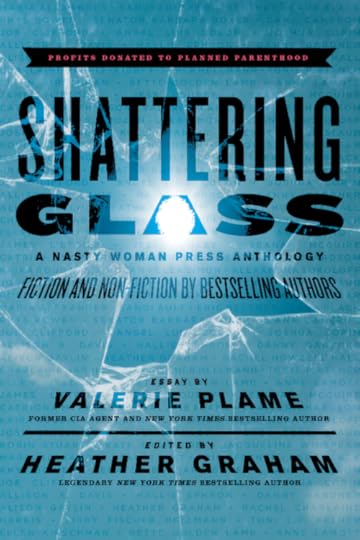
Tell us about your book!
I’m going to go with “Tell us about your story!” because that’s what I’m here for. I have a story in the forthcoming Shattering Glass.
“Nasty” is too short a story go give many details about it without spoiling it, but I can say it includes a cigarette dispenser like this one. You’d wind it up, and it would play music and a dog would pop up and hand you a cigarette. My grandparents had one just like it for as long as I can remember, and I thought it was the coolest thing.
[image error]
Looking back, I realize “Nasty” is oddly appropriate for this anthology because of how it was written. It started as an experiment in flash fiction for a particular market. After I wrote the story, I found out the market wasn’t going to work. (Note to myself: investigate markets more thoroughly before writing for them.) I put the story aside for a while, then edited it and sent it to my beta readers for comments. I rewrote again in response to the comments, but it still wasn’t coming to life. Finally I heard about Shattering Glass and Nasty Woman Press, and the name Nasty got stuck in my head. That’s I was able to go back to the story and make it work.
This kind of parallels the messages from Nasty Woman Press. First, this organization and this anthology are grand experiments, a reminder that we should always try new things. Second, there is no piece of writing that can’t be improved by input and suggestions from other writers. Third, patience is important for anything worthwhile.
Are you working on anything now? Is your process or routine different?
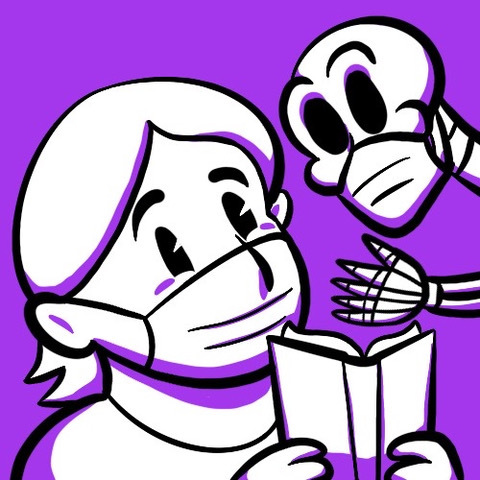
Ha ha ha ha ha! Process? Now? What process?
Count me as one of those who has had a really difficult time writing in the time of Covid-19. The ambient stress has done me in. But only temporarily. As the world comes to some sort of normality, I feel sure my writing will, too. Which means writing into the wee hours of the night, when it’s nice and quiet. At that time, I will be working on the first book of a proposed new series. It’s a kind of caper set among high school parents. Count me as one of those who has had a really difficult time writing in the time of Covid-19. The ambient stress has done me in. But only temporarily. As the world comes to some sort of normality, I feel sure my writing will, too. Which means writing into the wee hours of the night, when it’s nice and quiet. At that time, I will be working on the first book of a proposed new series. It’s a kind of caper set among high school parents.
Do you think your writing will be changed by this crisis?
Which crisis? This has been the year of crises! Since I think everything I go through somehow filters into my writing—sometimes intentionally, often not—I assume this will, too, but I don’t know how.
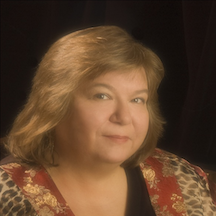
What’s the first thing you’re going to do when we’re free to be social again?
I have three “first” things. I want to eat out at the Border Cafe, my favorite restaurant; visit the Museum of Fine Arts in Boston; and go to a bookstore and browse for hours!
I will see you in the fiction aisle!
Illustration courtesy of Toni’s daughter, Maggie Kelner. Find her at dappercap.net
June 16, 2020
“Shattering Glass” book giveaway!
SO proud to be part of this! Read through for giveaway details

SHATTERING GLASS is the first, extraordinary release in a planned series of anthologies from Nasty Woman Press. Nasty Woman is a unique non-profit publisher fighting to help organizations imperiled by the rise of autocracy and the ongoing war against civil and human rights in the United States and across the globe.
Our inaugural collection is a scintillating mixture of top-flight fiction from bestselling authors, fascinating articles, thought-provoking essays, conversations and interviews. Its theme is the empowerment of women, and all profits from this book will be donated to PLANNED PARENTHOOD.
“Shattering Glass is an anthology of fascinating stories by and about women of all ages, from a satisfyingly diverse array of backgrounds. The insights and observations are moving, often poetic, and always compelling. This is a book to cherish and one you’ll read and reread for years to come.”
Marcia Clark, New York Times bestselling author
“Shattering Glass is an anthology unlike anything I’ve seen before, a diverse collection of high-caliber short fiction, provocative essays, and engaging conversations and interviews, tied together thematically by the writers’ collective commitment to create work that explores our current cultural moment. Opening with Valerie Plame’s fiery call for political engagement and closing with Heather Graham’s poignant reflection on the values instilled by her immigrant parents, this collection surprises and enlightens. Your inner Nasty Woman will approve.”
Alafair Burke, New York Times bestselling author of The Better Sister
All-Star Cast of Contributors Include:
Heather Graham
Valerie Plame
Maria Alexander
Sandi Ault
Eric Beetner
Cara Black
Rhys Bowen
Senator Barbara Boxer
Dana Cameron
Joe Clifford
Angel Luis Colón
Joshua Corin
Allison A. Davis
Hallie Ephron
Danny Gardner
Alison Gaylin
Rachael Howzell Hall
Charlaine Harris
Libby Fischer Hellmann
Toni L.P. Kelner
Ellen Kirschman
Bette Golden Lamb
Anne Lamott
James L’Etoile
Jess Lourey
Seanan McGuire
Catriona McPherson
Travis Richardson
Kaira Rouda
S.J. Rozan
Clea Simon
Alexandra Sokoloff
Josh Stallings
Kelli Stanley
Wendy Corsi Staub
Robin Stuart
Kate Thornton
Jacqueline Winspear
Get it today from your local independent bookstore (on Bookshop.org): https://bookshop.org/books/shattering...
Or on Amazon: https://amzn.to/2Y3LgFE
You can also enter to win a copy by commenting here. I’ll choose two winners at random and be in touch to ask if you want a hardcover, paperback or e-book.
June 7, 2020
#NoContact Book Tour with Lisa Braxton
Welcome to the #NoContact Book Tour! Today I’m thrilled to host Lisa Braxton. This Emmy-nominated TV writer’s first novel, The Talking Drum deals with issues of race and discrimination in a fictional Massachusetts, all in the context of a great read. Thanks to pandemic-related release rescheduling, the book officially goes on sale June 15. But on June 9, she’ll be having a virtual book launch, courtesy of Belmont Books, with Haley Ephron.
\
Tell us about your book!
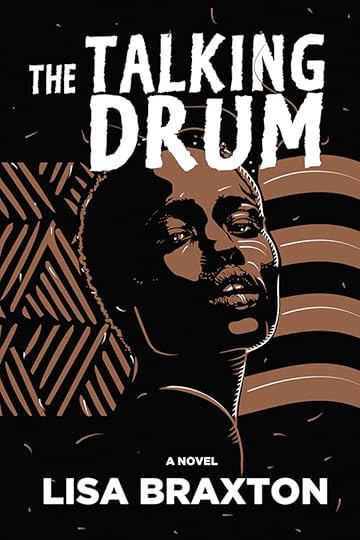
The Talking Drum is about three young couples in the 1970s and how they’re affected when an urban redevelopment project takes over an immigrant neighborhood for gentrification. Malachi and Sydney are opening a bookstore in a neighborhood adjacent to the community being targeted to be taken by eminent domain. Kwame and Della live across the street from Malachi and Sydney. Kwame is a mover and shaker, has the ear of the mayor, runs a record store, is a community activist, but seems to be shady. Della has an emotionally troubled daughter. Omar and Natalie live in the neighborhood slated for the development project. Omar doesn’t believe their apartment building will be taken. Natalie wants to move. Their marriage is complicated and filled with tension. Added to all that, an arsonist is burning down properties.
Are you working on anything now? Is your process or routine different?
I’m working on a second novel, going further back in history, taking place in the mid-1850s in Boston. My writing routine isn’t different but I’m writing with more precision. When I was writing The Talking Drum my first draft was close to 800 pages, more than double the number of pages I needed to tell the story. I was going off on different tangents before I honed the story. In writing the draft of my second novel I’m able finding the direction of the plot more easily.

Do you think your writing will be changed by this crisis?
I don’t think my writing will be changed by the crisis. I think the crisis has underscored that having information is essential and important on many levels. I feel more committed than ever to completing my second novel, because like The Talking Drum, my themes contain important messages that people need to hear.
What’s the first thing you’re going to do when we’re free to be social again?
Ask my husband to take me out to dinner in Rockport, Massachusetts, a seaside village, so that I can enjoy a glass of wine and plate of scallops while watching the sailboats bobbing on the water.
Oh, the sounds idyllic! Hope to see you there soon!
From the publisher: The Talking Drum is inspired by the author’s personal story, which Lisa shares here. Lisa grew up in the throes of an urban redevelopment crisis. Her parents owned and operated a clothing store in Bridgeport, Connecticut in the 1960s into the 2000s. Their livelihood and community were affected by the gentrification that threatens to upend the lives of the characters within The Talking Drum.
June 6, 2020
Black Lives Matter
This should be obvious, right? And yet our fellow citizens – people of color – continue to be killed by those who are supposed to uphold the law. It has to stop. We have to be better than this, or there is no hope for any of us. Black lives matter.
I’ve marched here in Boston and in Washington, D.C., multiple times over the years, and I wish I could join in the protests now. I can’t – my husband and I are in higher risk groups for COVID-19 – but I want to do what I can to support the protesters out there in the streets in every state of our union and in many other countries as well. Therefore, I’m contributing and urge you all to contribute what you can to programs like:
the NAACP Legal Defense Fund: https://www.naacpldf.org
The Bail Project: https://bailproject.org
Black Lives Matter: https://blacklivesmatter.com
American Civil Liberties Union: https://www.aclu.org
Or any social justice organization working to right these wrongs, pay reparations (yes, we need to), and enact corrective legislation.
In a small way, I’m also trying to use this space for some corrective action, trying to amplify the voice of writers of color, specifically those in my own field of crime fiction, such as Kellye Garrett, John Vercher, and Attica Locke. With that in mind, I’d love to send you over to Crime Writers of Color – https://www.crimewritersofcolor.com – to find your new favorite writer.
As Kellye posted on Facebook: Supporting equality should not be a political issue. It shouldn’t be divisive, and yet…
To which I can only add, we’re all in this life together. Democracy is not a zero-sum game. We all win, or none of us do. Won’t you join us?
“A Burning” by Megha Majumdar
Honored to review this timely debut novel in last Sunday’s Boston Globe. No, I didn’t think it was flawless, but it is thrilling – and an important read. For that reason, I’m posting it here:
Furies and fates
A propulsive debut ponders life on the margins
By Clea Simon Globe Correspondent,Updated May 28, 2020, 12:00 p.m.
For the vulnerable young woman at the center of “A Burning,” one wrong move is enough to spark catastrophe.
In her ambitious debut novel, Megha Majumdar tackles the sectarian divide in her native India, where Hindu nationalists have increasingly targeted their Muslim compatriots. Her protagonist, Jivan, is a member of this marginalized underclass: Muslim and desperately poor, she stumbled into a scholarship that gave her a shot at a better life and has parlayed her education into a position as a salesgirl in a clothing shop, the kind of job that allows her to own a phone and get on Facebook. As it would be for many 22-year-olds, the lure of peer approval is strong, and, as the book opens, in search of social media “likes,” she makes a rash comment about the government response to a terrorist attack — the bombing of a train that results in the burning of the title. What follows unfolds with a horrible inevitability.
Many elements play into Jivan’s downfall. Her religion, in particular, has made her new economic security, and the accompanying class status, precarious. “The country needs someone to punish,” she tells her lawyer. “And I am that person.” What complicates this fundamentally simple tale, driven by its headlong rush toward tragedy, is how everyone around her is subverted or seduced into supporting this scapegoating — the second burning, if you will.
These are up-to-the-minute issues, and, while engaging, the book occasionally reads more like straightforward social commentary than a fully realized fictional world. What rescues it from polemicism are the detailed and personal voices of its narrators, particularly the women at its heart.
Told primarily in three voices, all either students or teachers, the novel relies heavily on dialect and colloquial phrasings. This approach, seemingly naïve, camouflages some beautiful and subtle imagery, as when Lovely, the least educated of the three main narrators, first appears. “With my hips swinging like this and like that, I am walking past the guava seller,” she says. When she asks him the time, “he is not wishing to share with me the fruits of his wristwatch.”
Lovely, who was receiving free English lessons from Jivan, is a hijra, a third-gender or, as we would likely term her, transgender woman. Cast out by her family and thwarted in love, she desperately wants to be an actress and views film stardom as her way out of circumstances more desperate even than Jivan’s.
PT Sir, Jivan’s former physical therapy (i.e., gym) teacher, provides the novel’s third main voice in a third-person narration that reveals both his insecurities and pettiness. Although he clearly sees his scholarship student’s poverty, for example, he congratulates himself on how he “pardoned her soiled skirt. He forgave her old shoes,” as if they were slights against his authority.
While Jivan’s parents, among others, have brief airings and Jivan’s narrative remains central, Lovely’s is the most compelling, and it is in her first-person passages that Majumdar’s writing shines. “My chest is a man’s chest, and my breasts are made of rags,” the author has her say. “So what? Find me another woman in this whole city as truly woman as me.” After Jivan, she is also the most sympathetic character, having suffered horribly — including witnessing the mutilation of a friend, another hijra, during a botched gender-confirmation surgery. It helps that the acting skills she seeks to trade on are presented as believable and her dreams potentially within reach. While the choices she makes to attain them are despicable, they are ultimately comprehensible — even forgivable. “In this world, only one of us can be truly free. Jivan, or me,” she recalls being told. “Every day, I am making my choice.”
These choices, small decisions by Lovely and PT Sir that collectively loom large, propel the book, and the novel’s breakneck pace stumbles when these narrators are absent, notably during a segment when Jivan manages to speak to a journalist. Hoping for understanding, she gives him — and us — her backstory, describing the privations and violence of her childhood in the Kolabagan slum in what reads like flat exposition, despite its gruesome detail. Likewise, the naivete of PT Sir, which develops into bald self-interest, quickly becomes cartoonish as he trades up — from a star-struck novice wowed by a free lunch (“a fresh hot box of biryani, with two pieces of mutton, arrives for PT Sir”) to an air-conditioned apartment — with barely a qualm.
Such simplicity is counterproductive. When it focuses on the struggles of Lovely and her peers, fellow underdogs, fighting for their own small piece of success, “A Burning” is heartbreaking, a damning indictment of a society depicted as utterly corrupt and racist. Even with its flaws, the book is an engaging and fast read. Along the way it introduces two compelling personalities, leaving open the question of whether either one is truly free.
Clea Simon is the author of “An Incantation of Cats.” She can be reached at www.CleaSimon.com .
A Burning
By Megha Majumdar
Knopf, 304 pp., $25.95
May 29, 2020
#NoContact Book Tour with Tracy Clark
It was the best of times. It was the worst of times. Best for me, because I get to host multiple-award-winning author Tracy Clark here on the #NoContact book tour. Tracy’s third Chicago mystery – What You Don’t See – is just out, bringing back investigator Cass Raines (and her family) in a case involving a media queen, death threats, and so much more. Worst of times because Tracy, like the rest of us, can’t tour to support her new book. But we’ll do what we can for her here, with the #NoContact book tour. So please, welcome Tracy!
Tell us about your book!
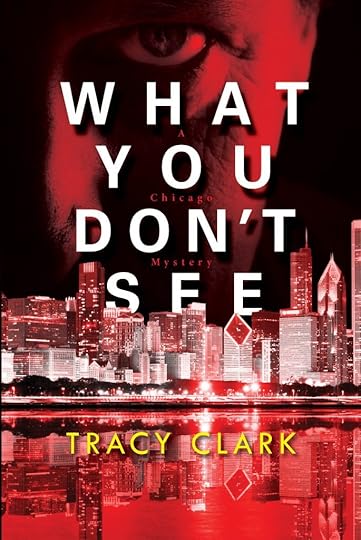
WHAT YOU DON’T SEE is the third installment in my Cass Raines Chicago Mystery series. In this one, Cass is recruited to help her ex-
partner work security for a pompous newspaper publisher, Vonda Allen, who has been receiving death threats. A simple bodyguarding job, however, soon turns deadly as Vonda holds fast to her secrets and bodies begin to fall around her.
Are you working on anything now? Is your process or routine different?
I am finishing up book four in the series, tentatively titled RUNNER. It’s about a runaway teenager. Cass is hired to find the girl, but soon finds out she’s not the only one looking. My routine’s pretty much the same. I’m usually up really early writing, which is the best time. The house is quiet and the phone and doorbell aren’t ringing. It’s just me, the laptop and the tea kettle.
Do you think your writing will be changed by this crisis?

Process wise, I don’t think so. Story wise? I may find a way of adding the pandemic to an upcoming storyline. I’ll have to wait and see. I think we’re going to see a lot of writers address it in some way, but I haven’t figured out how I want to do that yet.
What’s the first thing you’re going to do when we’re free to be social again?
I think I’ll take a long walk along the Lakefront without a mask on, then go stand in a room with more than ten people in it.
That sounds wonderful! In the meantime, anyone who wants to spend more virtual time with Tracy can find her at her website: www.tracyclarkbooks.com on Facebook: www.facebook.com/tclarkbooks and on Twitter: @tracypc6161
May 27, 2020
Missed it? Catch up now
Wow, that was a blast – six authors, questions, chat… I read from my upcoming HOLD ME DOWN and the feedback was wonderful (thanks so much, all!). If you want to view the event, you can see a recording here.
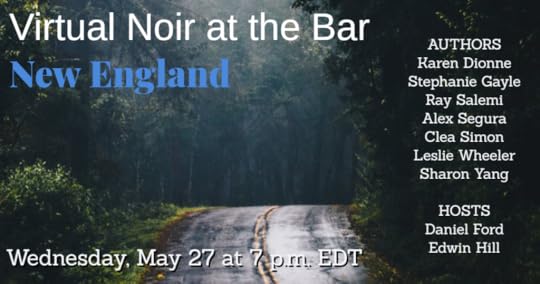
powered by Crowdcast
powered by Crowdcast
May 26, 2020
Virtual Noir at the Bar (join us?)
Can the cat writer go dark? Tune in tomorrow and find out… Free, of course, but register here: https://bit.ly/3cRD54b
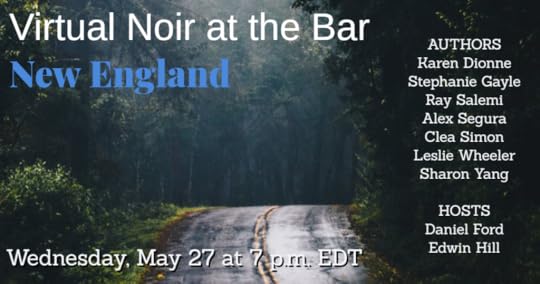
May 24, 2020
#NoContact Book Tour with Claudia Long
Welcome to the #NoContact Book Tour! While we all stay inside and stay safe, books have become even more important. But book events and conferences, alas, are canceled. To do my own small bit, I’m running interviews with authors whose tours must now be virtual. Today’s guest is Claudia Hagadus Long with a new novel that combines history, heritage, and adventure!
Welcome, Claudia. Please tell us about your book, Nine Tenths of the Law (Kasva Press 2020)
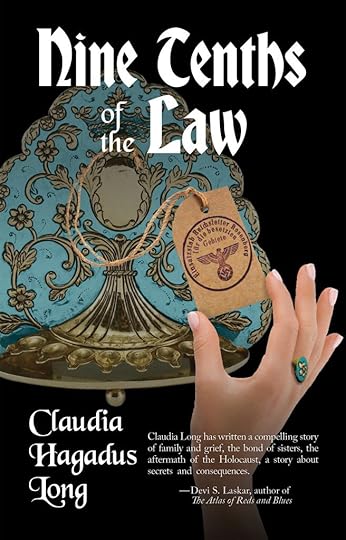
“Two sisters, their mother, and a Nazi thief: combining the strands of history, mystery and the enduring power of buried memories.”
Two sisters discover a menorah in the New York Jewish Studies Museum. They realize that it once belonged to their mother, Aurora. Aurora was fifteen when she walked out of the Warsaw Ghetto, orphaned and alone, after the Nazi foreman of the factory she’d been forced to work at eyed her for “special duties.” Decades later, her American daughters puzzle over the menorah that once belonged to her, and scheme to get it back.
Their quest leads them deep into their own memories, their relationships with their mother, their stories and each other. It also leads them to a criminal art thief with Nazi parentage, and a confrontation between the vanished past and the very real present.
One day, over forty years ago, my mother and I went to the Jewish Museum in New York City,
and she showed me the menorah that’s at the center of Nine Tenths of the Law. “We had one
just like that,” she said to me.
She was telling me, That was mine.
It’s with that memory of my own that the book starts. It’s tied together with my mother’s
stories, but it’s a book about sisters, really, a book of the survivors’ children. There’s a mystery,
there’s humor—what’s a Jewish book about tragedy without humor?—and there’s love.
What would you have been doing now to promote it? Where would you have been speaking? What bookstores would you have visited?
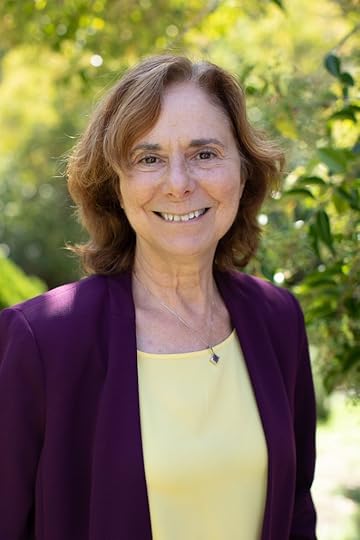
I had it all planned! Of course, I first would have had a launch party for family and friends at the Owl in Oakland (California) where I’ve launched some of my previous books.
But they’re closed. Then I would have done readings at Books, Inc. Alameda (California), one of my all-time favorites,and Book Passage at the Ferry Building (San Francisco) where I had done readings previously. I was hoping to set something up at Flashlight Books in Walnut Creek as well. They’re pretty new here and I was excited to get to know them better.
Oh, I had big plans. I’m still hoping that I’ll be able to get a program together with another author, the brilliant Stuart Roszister, who wrote The Mathematician’s Shiva, for one of our many venues in the San Francisco Bay Area, or at the very least, do something virtual with a few other writers. And I was going to submit for LitCrawl, the amazing street party of LitQuake, that takes place in the fall in the Mission District of San Francisco.
Okay, I’m going to tear up now…
And, of course, I had plans to do a few events in New York, where the book takes place. You know, pre-pandemic New York: maybe Sarabeth’s restaurant, and maybe at the Jewish Museum across from Central Park (where I first saw the actual menorah!) My sister, who still lives in New York, was going to arrange a few events as well.
I haven’t given up hope. Maybe we’ll do all this next year!
Are you working on anything now? Is your process or routine different?
I’m still in the launch process for Nine Tenths, as the book has been out only a few weeks, so I’m very focused on this book. I’ve got some ideas for the future, though, and have done some outlines and character sketches, but nothing substantial yet. I may go back to my earlier era, Colonial Mexico (1690-1750) and may even pick up something with the Castillo family. (Josefina’s Sin, The Duel for Consuelo, and Chains of Silver, all available for your quarantine-escape reading pleasure!) or jump to the 1930’s in San Francisco for a bit of legal history. Or maybe the sisters in Nine Tenths, Zara and Lilly, will have another adventure together.
I do all my drafting during NaNoWriMo (National Novel Writing Month…November) so we’ll see where we are with this pandemic in the fall.
Do you think your writing will be changed by this crisis?
Not really. At least I don’t think so. If anything I write takes place in the present I would have to have my characters behave in a manner consistent with reality, but human nature doesn’t change. I also truly believe that we will be together again.
Some things will change (we take our shoes off at the airport, right? Unthinkable before 2001) and we have no way of knowing how they will be different in advance. But we are, at the core, the same. Think of history: from 1914-1918 we had World War I, and the Spanish Flu pandemic for two years after that. Yet we embraced again. We had the Great Depression and World War II, and we made love, babies and art during those times. We had 9/11 and the real estate recession in 2008-2010 and our economy recovered and we found a reason to believe in the future.
As humans, we are resilient. We will get through this world-wide crisis, and return to our old ways—good and bad—with amendments for the times.
What’s the first thing you’re going to do when we’re free to be social again?
Seriously? See my grandchildren. Then I’m going to go out for coffee, sit in the sun with a friend and talk, and then walk down the street without feeling that I’m violating the social contract by leaving my house, go to a book store, leave with an arm-load of new books I picked off the shelves instead of being presented by an algorithm, and go to the Lafayette Reservoir, and read in public!
Thanks so much, Claudia! I look forward to seeing you read in person!



